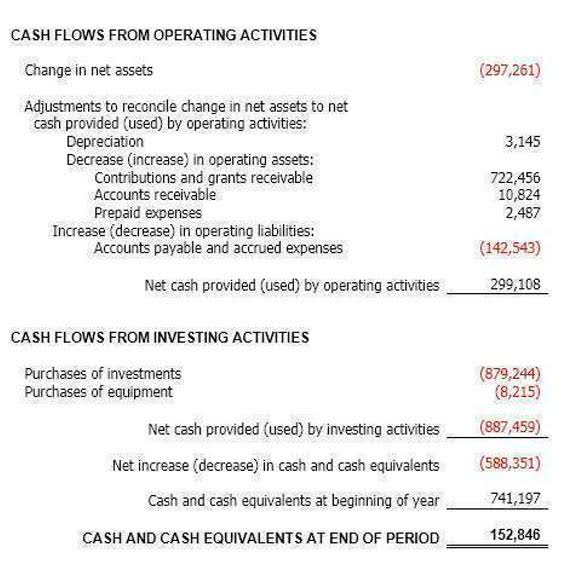Understanding Cash Basis Net Income and Its Financial Impact

This clarity can be advantageous in industries with volatile cash flows, where understanding the timing of cash movements is essential for accurate financial forecasting and risk assessment. However, as companies mature and their operations become more complex, you must switch to accrual vs cash accounting. It is more complicated, but it’s worth it because it will make it easier to build the reliable financial reporting function you need to manage your business confidently. With accrual accounting, you get the following business performance-enhancing benefits and more. Cash accounting (also known as cash-basis accounting) is when a company records transactions when money comes in or goes out of the business. In other words, you “recognize” revenue on your income statement when the cash enters your bank account, and expenses are recorded when they are paid.
Selecting the Right Farm Accounting Method
When a landscaper receives payment from a customer for services rendered last week, they record the income on the date the payment is received, not when the landscaping services were provided. Certain entities must navigate the prerequisites of cash basis accounting while considering the implications on financial reports and tax liabilities. This section examines the specific benefits and drawbacks of cash basis accounting, detailing how it impacts business management and what challenges may arise from its use. Adopting cash basis bookkeeping provides a clear and immediate picture of a company’s cash position, which is beneficial for those who require a simple way to manage their finances. When it comes to managing the finances of your business, accounting methods are one of the most crucial decisions entrepreneurs and financial managers make. Learn all about cash basis accounting, including key concepts, examples, and the pros and cons of online bookkeeping using this method for your business financials.

The Best States to Retire for Taxes
- For example, the cost basis of an investment is different if you bought the investment for yourself vs. if you inherited it.
- Unlike accrual basis accounting, which records income and expenses as they occur regardless if payment has been received or not, cash basis net income only considers transactions where actual payment was made.
- Accrual accounting recognizes revenue at the point it is earned—typically when a product is delivered or a service is performed—regardless of when payment is made.
- This approach can be beneficial for smaller businesses with limited resources since it provides a clear picture of their current financial state without having to deal with complex accounting methods.
- These types of businesses usually operate on a simple payment system where they receive money from customers directly and pay vendors immediately.
- While a single-entry system is simple to use, it does not provide the whole story regarding profit and loss and is therefore not useful for business analysis.
One of the most important financial decisions you’ll make is choosing the right accounting method. Cash basis accounting, with its focus on actual cash flow, is a popular choice for many small businesses and freelancers. In this comprehensive guide, we’ll explore everything you need to know about cash basis accounting, including its benefits, limitations, and tax implications. To determine cash basis net income, focus on actual cash transactions within a specific period. Identify all cash inflows, such as payments from customers, and subtract cash outflows, including expenses like rent, utilities, and salaries. This calculation provides a view of a company’s liquidity, highlighting cash available for reinvestment or distribution.

How often should businesses report revenue?
- Because income only shows up when payments are collected, it may understate revenue in busy months and overstate it in slow ones, depending on when payments hit.
- A cash basis balance sheet may not fully represent a business’ financial position because it doesn’t include accounts receivable and accounts payable.
- Cash basis bookkeeping only tracks amounts paid and money that has been physically received, so there is no way to audit outstanding transactions.
- Businesses must still adhere to IRS rules and ensure their financial practices align with legal requirements.
- Cash basis accounting only shows you how much cash you’ve brought in or paid out.
- Dedicated to bringing readers the latest trends, insights, and best practices in procurement and supply chain management.
- Under accrual accounting, income and expenses are recognized when earned or incurred, which is different from the cash method’s transaction-based approach.
This method also eliminates the need to track inventory or work in progress, a process that can be complex and time-consuming. Our AI-powered Anomaly Management Software helps accounting professionals identify and rectify potential ‘Errors and Omissions’ throughout the financial period so that teams can avoid the month-end rush. The AI algorithm continuously learns through a feedback Insurance Accounting loop which, in turn, reduces false anomalies.

What does the cash method of accounting mean?

This approach can result in deferring tax liabilities, as income recognition may occur in a later tax period, potentially giving the business more time to use those funds for growth or other purposes. Many companies use tools like Ramp to auto-categorize transactions and sync data directly into systems like NetSuite or QuickBooks to reduce cash basis accounting measures income based on errors and speed up month-end reporting. This applies to businesses selling physical products, digital goods, or subscriptions. For service-based businesses, revenue is usually calculated based on billable hours or flat fees charged to clients. For example, if your company sells a piece of equipment for more than its book value, that gain is considered non-operating revenue.
Effective Bookkeeping Contracts: Key Elements and Structures
This transition may have tax implications, as it can affect the reporting and recognition of income and expenses. Businesses using accrual basis accounting may find it necessary or beneficial to switch to cash basis. This system does not recognize receivables or payables, as transactions are only recorded when cash changes hands. Cash basis bookkeeping is a straightforward accounting strategy, prioritizing simplicity and a clear snapshot of cash flow.



